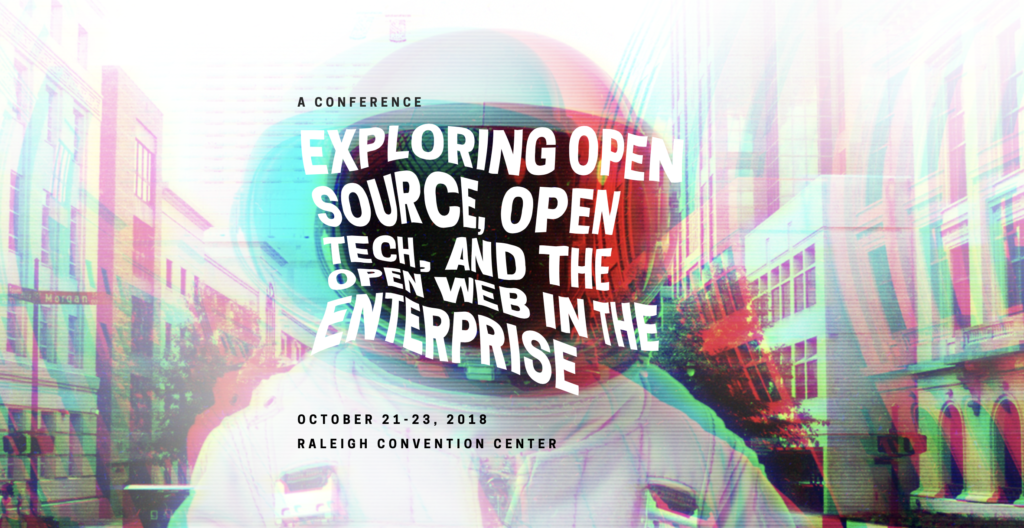The annual gathering of free and open source software developers, the All Things Open Conference in Raleigh, NC, is not just a major event for the IT domain in the US, it is also an intriguing example of how to implement the values and reflect on developments that are connected to the idea of openness. Most striking, in terms of organizing a conference, is when visiting the conference’s website you will find pages named “Code of Conduct”, “Values”, “Inclusion”, “Mission Statement”, and “Environmental Policy”. The latter points out, for example, considerations such as reuse/recycling of conference accessories and conference hotels being in walking distance. This might seem banal for a major international tech event of 3,500-4,000 attendees but it sets the record straight, acknowledging the subtle meta-levels of hosting a conference that claims all things to be open.
An Astronaut to Depict the Future
As an introductory note, the conference organizers have pointed out, that this year’s theme – a coming future disruption – is to be understood in a larger context. Whereas many people might think the disruptions untapped by the open source movement are over with as we witness more and more open source projects sponsored and conducted by big players such as IBM, Google, Microsoft, and Amazon, the journey is not over yet. For its 10th anniversary in 2017 GitHub launched the Octoverse to showcase the evolution of the platform. It states 24 million developers working cross 67 million repositories. This is a big number, but All Things Open takes that number to advocate for a coming surge of contributions to the open source community:
“And the developing world will make an even larger and more disruptive surge – people whose access to technology increases more rapidly than the local economy have very different wants and needs than those of people in more static and stable first world economies. As they make direct impacts on the course of software evolution, the rest of us will feel it in new and unpredictable ways.”
The theme of the conference wants to acknowledge and foster an inclusive and holistic view of open source developments by opening up the discussion to a growing community in developing countries and to local small businesses. When those directly involved with the application of technology and software become creators or part of the creation process the possible disruptions ahead are indeed promising. In addition, the rendering of “the open space” in which technologies can be and are developed today creates a sense of opportunity that should not be limited those already busy in the scene. In this sense, it is motivating to see how All Things Open wants to address a wide range of people with an interest for open source. No need to be a technologist or senior software developer. The conference offers a couple of hands-on workshops helping to find a way into the open source universe. As a matter of fact, the conference organizers see their mission in “providing world-class open source educational content via conferences, meetups and workshops in a way that maximizes and allows access for anyone…”. Access is the key term here. In being aware of steering accessibility of an event by the pricing policy, attendance policy, and welcome culture the conference speaks up for issues occurring in many other domains of research and technology. As I have never been to an All Things Open conference I am not able to judge out of first-hand experience. However, the sound of the concept, the listed speakers and sessions, and – as a designer, I must admit – also the look of this year’s theme are really convincing.
All Things Open Conference
October 21-23, 2018
Raleigh Convention Center, NC
USA
